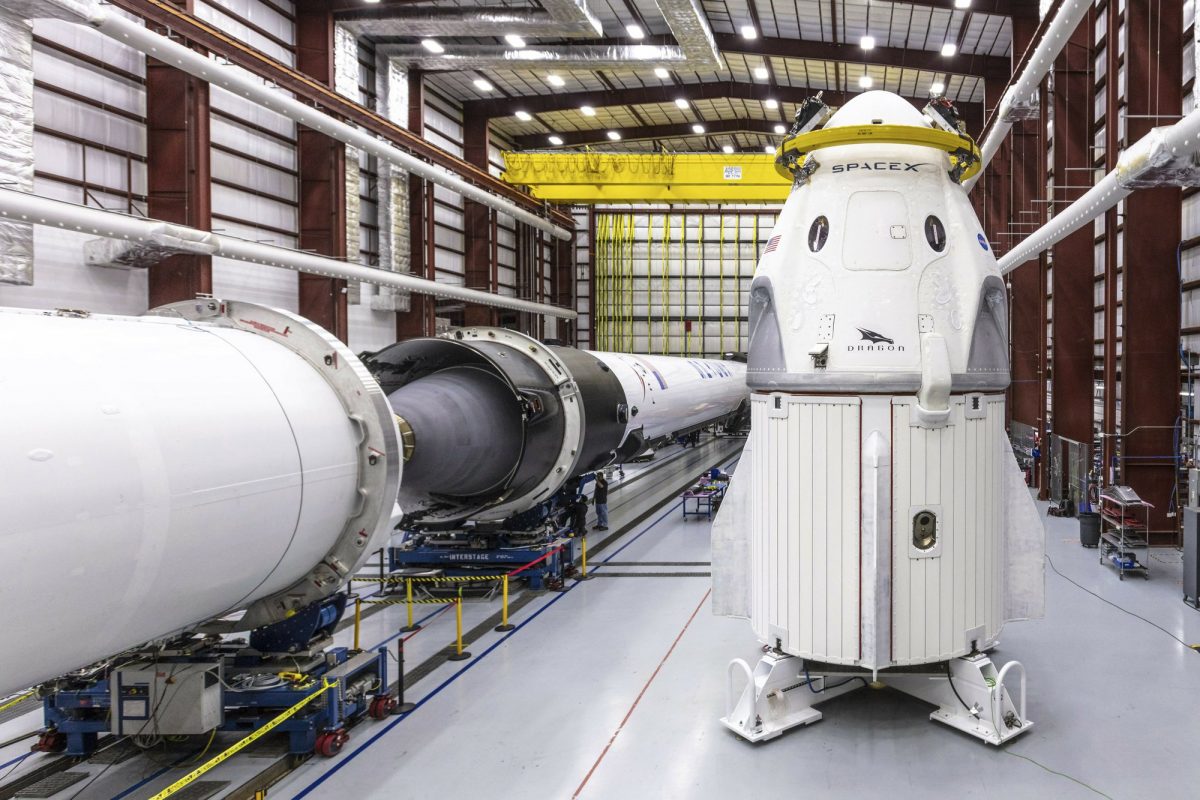› Forums › General › News (General) › SpaceX Plans Launching 30,000 More Starlink Satellites to Meet Projected Internet Demands
Tagged: Ecosystem_G10, IoTServices_V10, Tech_G15
- This topic has 0 replies, 1 voice, and was last updated 5 years, 2 months ago by
Telegram SmartBoT.
-
AuthorPosts
-
-
November 1, 2019 at 5:45 am #38239
#News(General) [ via IoTGroup ]
Headings…
SpaceX Plans Launching 30,000 More Starlink Satellites to Meet Projected In
FBI Warns Of Cyber Threat From China Threatening US Security: ReportAuto extracted Text……

SpaceX’s Crew Dragon spacecraft and Falcon 9 rocket are positioned inside the company’s hangar at Launch Complex 39A at NASA’s Kennedy Space Center in Florida, on Dec. 18, 2018.
SpaceX Plans Launching 30,000 More Starlink Satellites to Meet Projected Internet Demands
The Space Exploration Technologies Corporation, SpaceX, is planning to send 30,000 new Starlink broadband satellites into the sky in a bid to meet future demands for fast and reliable internet, TechCrunch reports.
The company already has permission to launch 12,000 new satellites into space and hopes the extra satellites will responsibly “meet user’s anticipated needs.”A SpaceX spokesperson told the publication: “As demand escalates for fast, reliable internet around the world, especially for those where connectivity is non-existent, too expensive or unreliable, SpaceX is taking steps to responsibly scale Starlink’s total network capacity and data density to meet the growth in users’ anticipated needs.”
The publication says SpaceX is hoping to launch hundreds of satellites in the coming year as it anticipates a considerable demand for highly-optimized broadband globally.
It will reportedly take up to 24 launches of Starlink satellites for SpaceX to be able to provide global coverage.
It will not be operating all of its satellites in the same orbital region.
The company is also taking specific measures to avoid additional issues with traffic, such as building an automated collision avoidance system, structuring de-orbiting plans, and sharing information about the orbital routes of their satellites.
It is also said to be turning back around all the Earth-facing Starlink satellites to minimize reflected light.
Astronomers and space watchers are worried that a build-up of satellites may impact scientific observation and research
Read More..
AutoTextExtraction by Working BoT using SmartNews 1.0299999999 Build 26 Aug 2019
-
-
AuthorPosts
- You must be logged in to reply to this topic.
